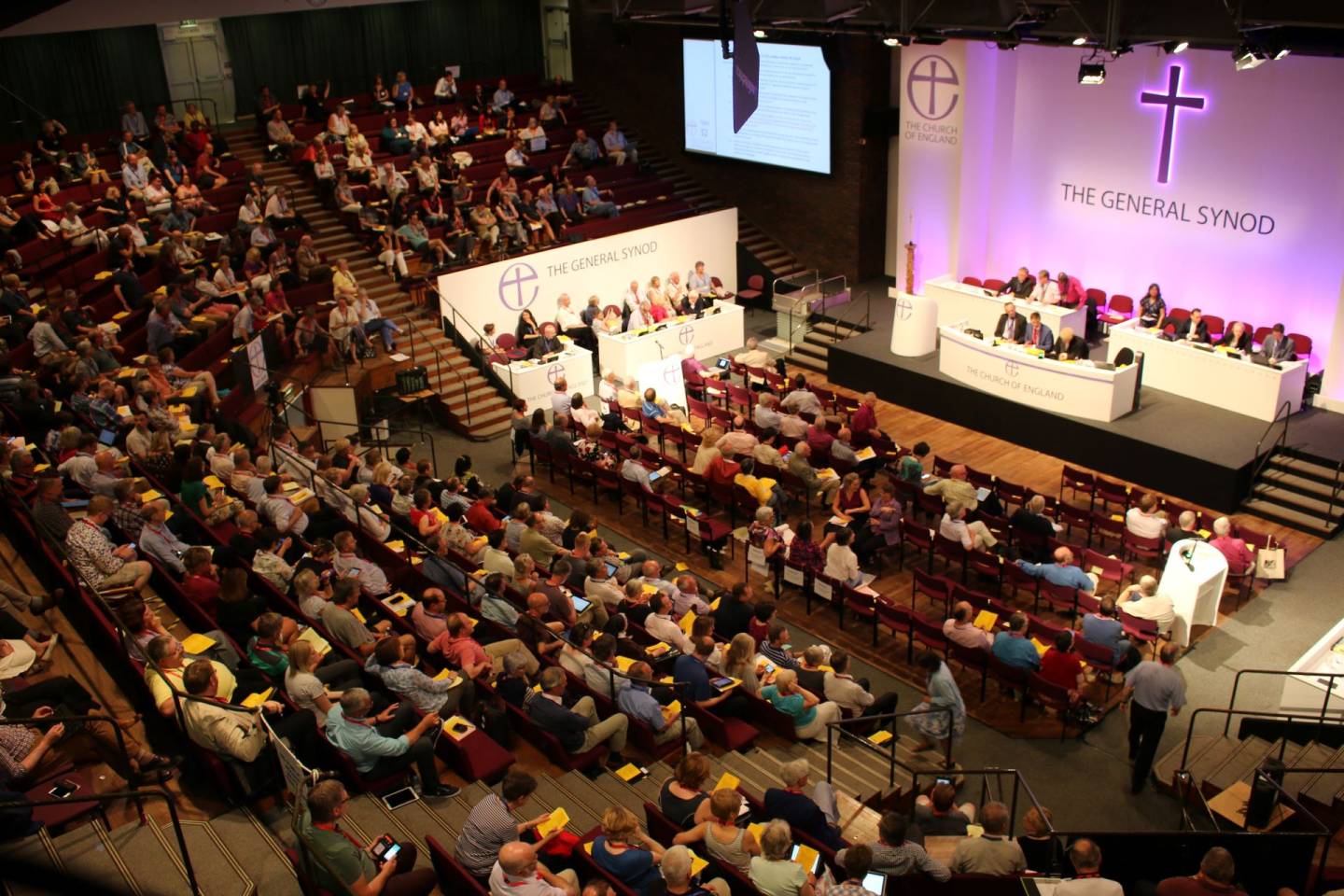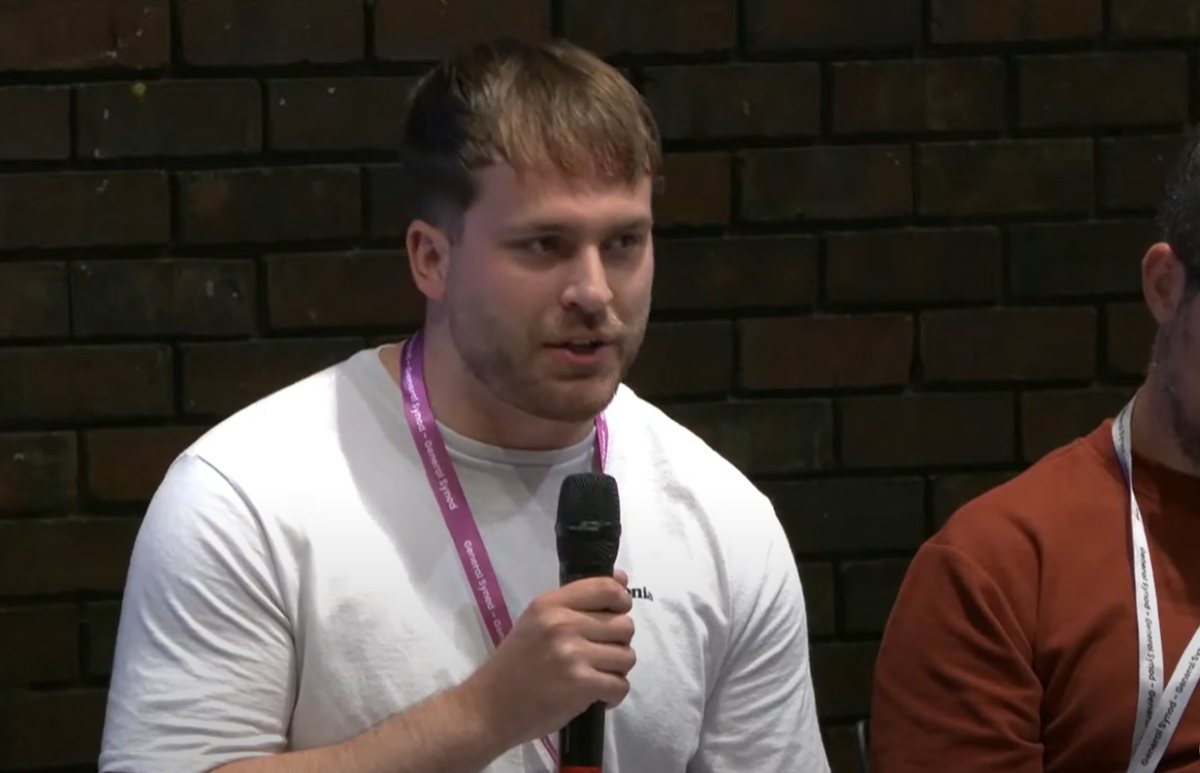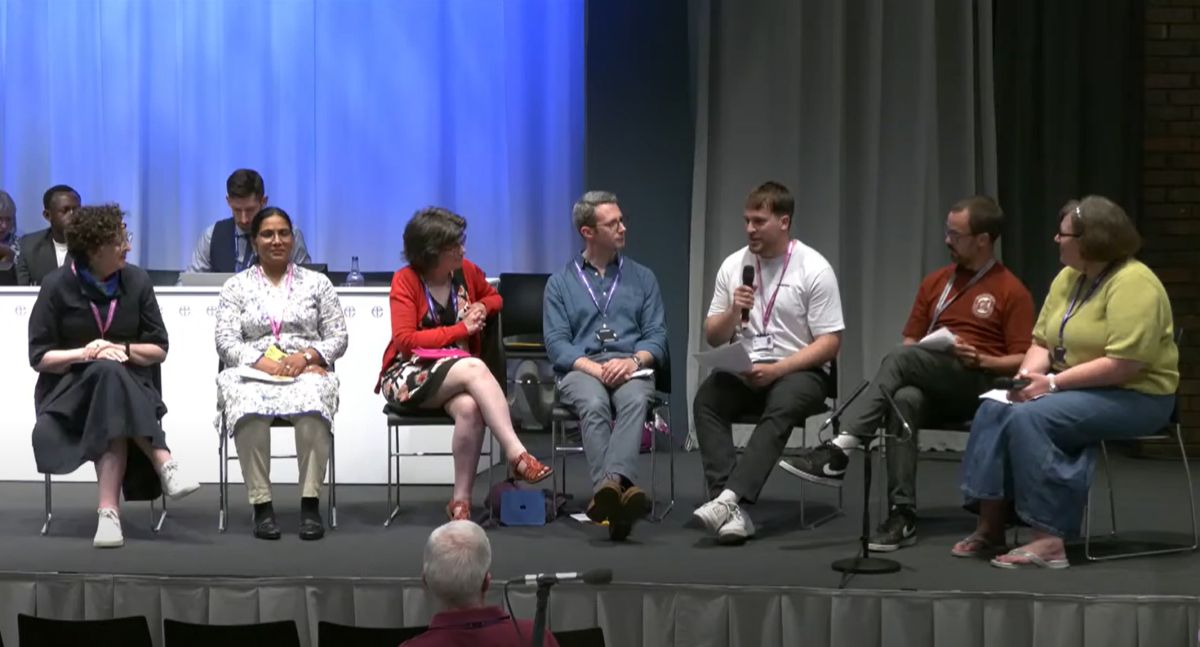 In February 2025, General Synod voted to strengthen the role of young adults in shaping the Church’s future, passing a motion to embed their voices more systematically in national decision-making.
In February 2025, General Synod voted to strengthen the role of young adults in shaping the Church’s future, passing a motion to embed their voices more systematically in national decision-making.
In time, the vision is to have a group of 200 young adults – roughly five per diocese – representing our many and diverse Church communities. Right now, six dioceses have been invited to pilot how this will look, including the Diocese of Leicester.
During May and June, five young adults from our diocese (aged between 18 and 25) took part in two video calls alongside five other participating dioceses. The calls gave the young people an opportunity to learn about and comment on General Synod, and explore how to include young voices better.
A handful of the group were invited to attend the recent meeting of Synod in the city of York last month, including Joel Plant, who represented Leicester, and gave a powerful speech on the item ‘Church Growth and Revitalisation’.
 Joel shared stories of church growth in the Diocese of Leicester, leaning on examples including our Intercultural Worshipping Communities Project, the incredible story of Waltham Youth Group, and the termly listening exercises we have carried out over the last few years, hearing the voices of more than 1,300 children and young people. He also talked about the flourishing documented by his peers in the wider Church, including the dioceses of Blackburn, Bath and Wells, York and Portsmouth.
Joel shared stories of church growth in the Diocese of Leicester, leaning on examples including our Intercultural Worshipping Communities Project, the incredible story of Waltham Youth Group, and the termly listening exercises we have carried out over the last few years, hearing the voices of more than 1,300 children and young people. He also talked about the flourishing documented by his peers in the wider Church, including the dioceses of Blackburn, Bath and Wells, York and Portsmouth.
During Synod, Joel attended a fringe event on the Bible Society Quiet Revival Report - a report his speech also touched on and an area of great debate among young people.
Joel, who is considering standing for a position on General Synod himself, described it as a really good experience being at the event and addressing the council, saying: “It’s great to see them beginning to consider how they might listen to younger voices. I was particularly happy as it gave me a ‘taster’, as I consider standing for election.”
 There is no question that young peoples’ voices should be heard, but are we actually listening, is more to the point.
There is no question that young peoples’ voices should be heard, but are we actually listening, is more to the point.
“I think the process is evolving as it is in its infancy, so naturally it wasn’t perfect,” explains Joel. “I would like to see more agenda setting by young people who speak about the things relevant to us. However, I did feel like I’d contributed to something, and that people listened to what I had to say.”
He continues: “There’s a lot to be said for creating spaces where young people feel a sense of ownership. By including the voice of young people in projects like this, gives young people agency and ownership. There was lots of talk at Synod about all the stuff the church is ‘getting right’ across different contexts and traditions, as well as fresh ideas which young people can bring to the table to make the Church a place others want to come to.”
Matt Long, our diocesan Youth Engagement & Intergenerational Communities Enabler, works to empower and advocate for children and young people across the diocese and wider national Church and is passionate about the cause.
“If Growing Faith is a national commitment to achieve a culture change within the Church of England, so that every aspect of mission and ministry is considered by what it means for children, young people, and families, then listening and responding to the voice of children and young people is essential and fundamental to any approach,” he explains.
“What may it look like if we were to regularly include young voices as we plan our church services, curriculum and events? How may we include and embed young voices in decision making at PCC, diocesan, and national level? This is something we are exploring in the Diocese of Leicester. In 2026, we are planning to experiment with new ways of including young voices in diocesan decision making.”
He continues: “In the past two years we have reimagined how we hear from and respond to children and young people. We have heard from more than 1300 young voices across our city and county via seven termly listening exercises. We have explored themes, selected by young people, such as prayer, leadership and climate. Findings from these listening exercises have been shared with our bishops, who have responded via video.
“If you work with children and young people or are part of a church which has under 18s, please consider how you might listen and respond to their voices. A good first step is to participate in our termly diocesan listening exercise.”
You can read all our listening exercise reports and watch Bishop Martyn’s responses here.
If you have further questions or ideas, examples of good listening practice, or would like some support with this critical work, please get in touch with Matt Long on Matt.Long@LeicesterCofE.org